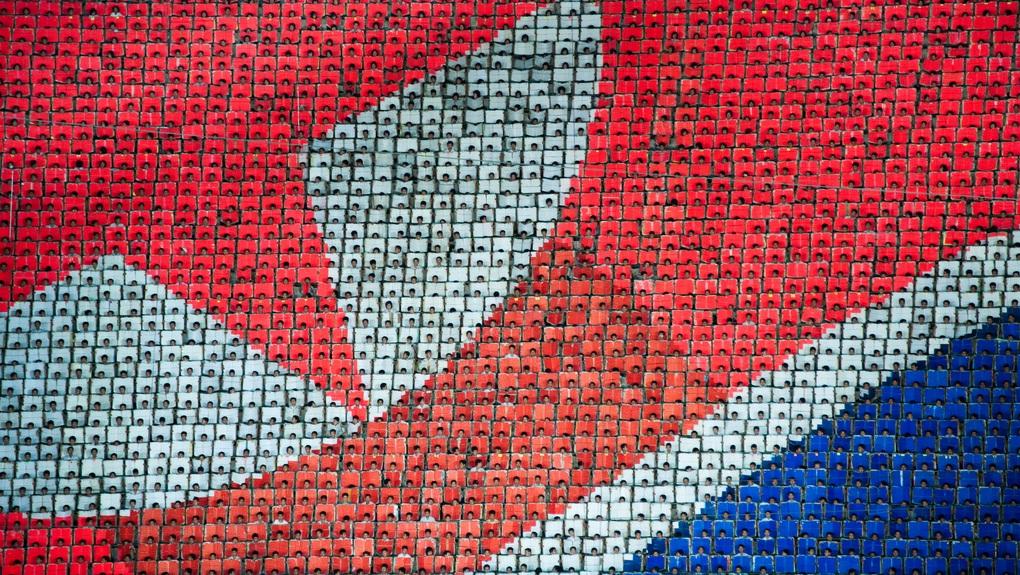Q&A with USIP North Korea Expert Frank Aum
This week, President Donald Trump said he is accepting an invitation by North Korean leader Kim Jong Un to meet face to face, perhaps as soon as May. Such a meeting would be the first between a sitting U.S. president and a leader of North Korea. Frank Aum, USIP’s senior expert on North Korea, told NPR on March 8 that the news made him “optimistic and terrified at the same time.”

Frank, can you explain what you meant by this?
AUM: When you have a high-level summit, anything can happen – especially when the two principals involved are known to use brinkmanship. President Trump’s willingness to meet with Kim Jong Un is unprecedented and bold compared to the approach of previous administrations.
Typically, major agreements begin with lower-level officials cautiously paving the way for a culminating summit between leaders, but it’s different in North Korea’s case. Since North Korean officials have no negotiating authority without the leader’s orders, a top-down summit might be the best way to reach an agreement.
This is what happened in 1994 when it took a meeting between Jimmy Carter and Kim Il Sung to lay the foundation for the framework of an agreement, the details of which were later filled in by State Department diplomats.
Still, I’m skeptical that North Korea is willing to denuclearize. Even if we offer everything that they want – a withdrawal of U.S. forces from the Korean Peninsula, a mutual disarmament process, sanctions relief, a peace treaty, normalization of relations, economic assistance – I still think North Korea would hesitate since having nuclear weapons is the ultimate guarantee of regime survival. And if we can’t get North Korea to commit to denuclearization, then the argument for a more extreme option becomes more salient.
President Trump doesn’t have a long track record of negotiations for us to examine, so we don’t know what to expect from him either. In his book, “The Art of the Deal,” he emphasized the importance of using leverage in business negotiations, so he may go into the meeting with Kim Jong Un ready to throw his weight around.
There’s also a danger Kim Jong Un will use this opportunity to meet with President Trump only as a propaganda victory, which we know Pyongyang has been craving for a very long time.
What will each side be looking for?
I don’t know for sure what North Korea is going to ask for – probably some combination of the things I mentioned -- but I can guarantee that it will be a lot. I’m not sure Washington would be willing to pay that price. Initially, I expect Kim Jong Un to ask for some sanctions relief, economic assistance, and a security guarantee.
Washington will, of course, be looking for Pyongyang to commit to denuclearization or, at the very least, for a nuclear weapons program freeze that leads to denuclearization. The White House would want to see concrete steps taken towards this goal, such as allowing international inspectors back into North Korea to conduct invasive monitoring and verification.
North Korea has allowed international monitors into the country in the past, but the question is: Will they have access to the right sites and facilities? What are the secret and underground tunnels and facilities that Pyongyang uses? This is one of the stumbling blocks that’s come up before. In 2008, at the tail end of the Six-Party talks, North Korea dragged its feet in terms of providing a verification process for its nuclear program.
What advice would you give the Americans heading into the summit?
The State Department has seasoned diplomats that know North Korea’s negotiating behavior well so I have full confidence they’ll prepare appropriately and coordinate well with our South Korean and Japanese allies and our Chinese and Russian partners.
But North Korea can be very crafty and use guerrilla-style negotiating tactics that frustrate and disarm. We didn't know Kim Jong Un would extend invitations to meet with [South Korean] President Moon [Jae-in] and President Trump so Washington needs to expect the unexpected.
Also, it’s important to realize that Kim Jong Un is not Kim Jong Il or Kim Il-sung. He's not his father or his grandfather. His motivations, interests, and resilience could be very different from what we’ve seen in the past from North Korean leaders.